Salt Baked Chicken
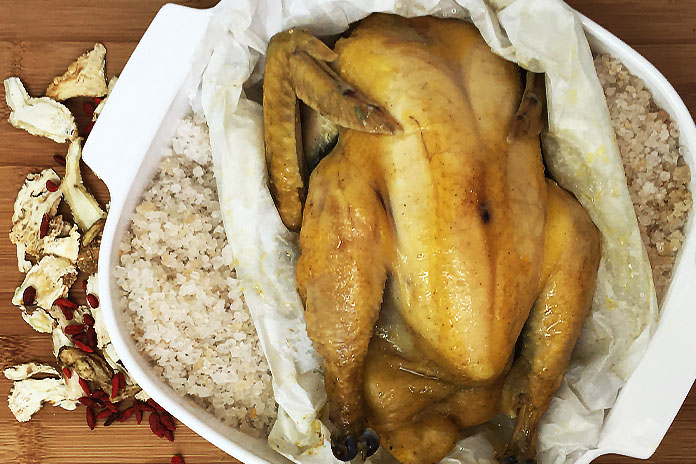
This classic chicken dish with Hakka heritage – yim kok kai – is believed to have persisted since the Qing dynasty marking the end of Imperial China around 1912. It requires minimal preparation, making it ideal for hectic festive schedules. Encased in a parchment paper jacket and then cocooned in searing hot sea salt, the chicken emerges surprisingly succulent with delicate smokey flavours from the salt. This iconic dish, popular in Ipoh, Malaysia is traditionally ‘baked’ in a wok. Nellie’s simplified cooking method simulating a Dutch oven yields superbly flavoursome results that comes with zero failure guarantee.
A: Chicken Stuffing
1 kampung (free range) chicken, about 2kg
3-4 slices dangui*
1 tablespoon goji berries
Thumb-size ginger, 4 slices
B: Marinade
1½ tablespoons rice wine
1 teaspoon sesame oil
1 tablespoon ground ginger, preferably from Bentong, Malaysia
1 teaspoon ground white pepper
1 tablespoon chicken seasoning (powder form)
1 teaspoon salt
C: Salt For Cooking
2½ kg coarse sea salt
DIRECTIONS:
1. Using kitchen paper towel, pat dry chicken.
2. Combine B ingredients in a small mixing bowl. Rub mixture all over chicken, including its cavity.
3. Insert stuffing ingredients into chicken cavity.
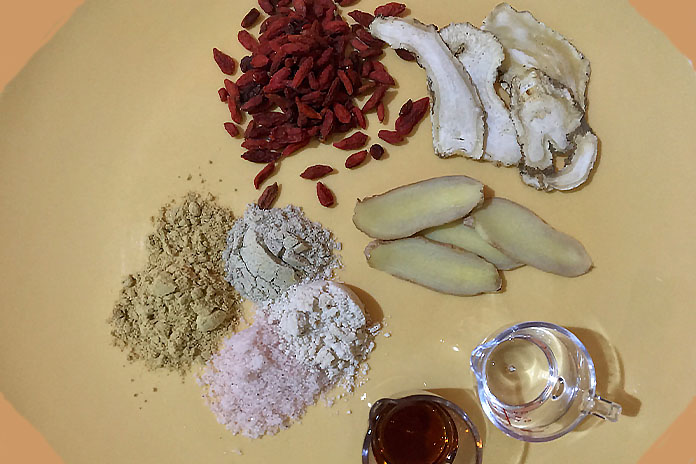
4. Using 2 large pieces of parchment paper, wrap up chicken as a parcel. Secure with kitchen string. Chill overnight in the fridge.
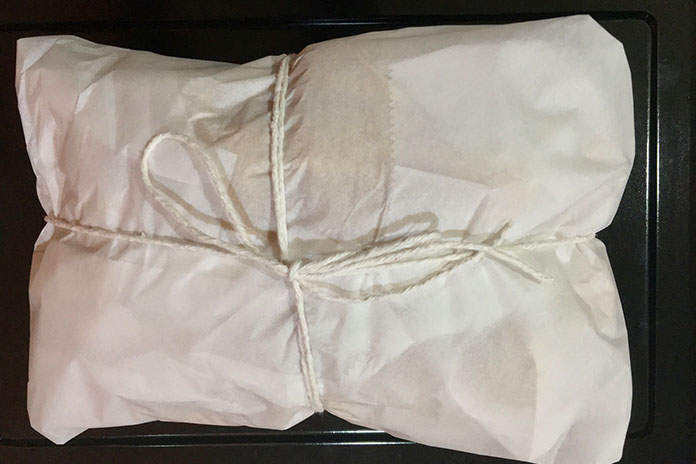
5. On baking day, remove chicken from the fridge 2 hours before baking.
6. Meanwhile, preheat oven to 230°C. Spread salt in a disposable aluminium tray. Bake 30 minutes. Caution: Salt is very hot at this stage. Exercise great care when removing tray from the oven to prevent scalding. Turn oven heat off.
7. Carefully transfer some salt to form a layer on the base of a large enamel, stainless steel saucepan or Dutch oven. Nestle chicken, breast side facing up, on the bed of salt.
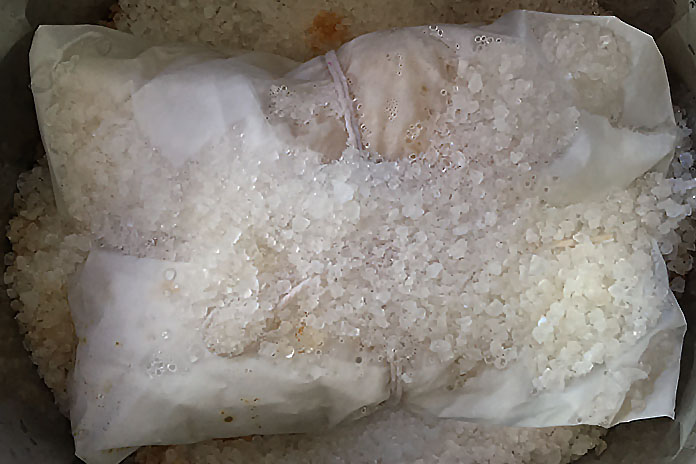
Cover with remaining salt. Put lid on.
8. Place saucepan over the stove set at medium heat. Cook for 40 minutes. Allow chicken to remain embedded in salt another 30 minutes, until it is warm to the touch. Transfer parcel gently to a large serving platter by using a large wooden spoon to lift it out from the saucepan. Carefully unwrap and pull away paper, allowing chicken to cool down.
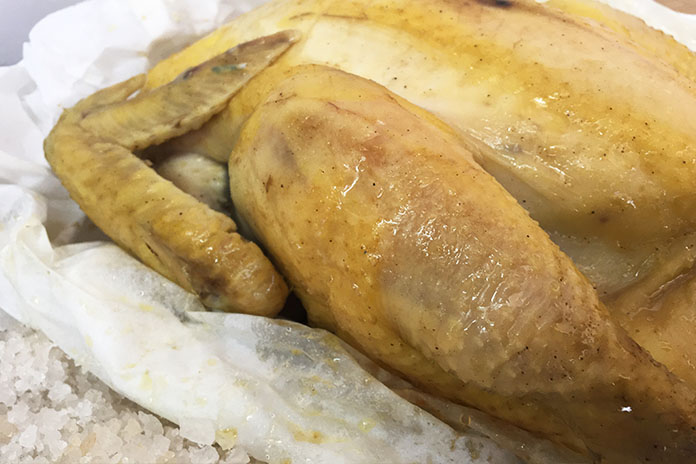
It is commonly served by pulling away chicken meat and eating it deboned. Alternatively, serve it by portion.
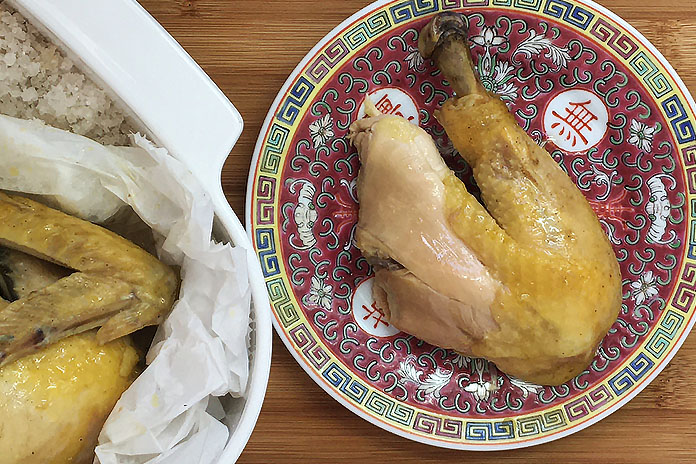
Set aside chicken carcass for making soup.
9. Enjoy chicken piping hot.
*NOTE: Dangui or angelica sinensis is a ginseng commonly used in Chinese traditional medicine.
TIP: Discard any discoloured salt that has turned brown from cooking during baking. Save the rest for the next baking. Use an old saucepan for this dish. After it cools down, rinse it well and store in a cool dry place.
TECHNIQUE: There must be at least 2 layers of parchment paper. The 1st layer seals in juices that secrete during baking, whereas the 2nd layer shields the chicken from direct heat that can scorch the bird.
Photos: Nellie Bok
Click on storm-asia.com/food for more recipes and reviews of restaurants.
If you have a simple recipe to share, please email it whipitup@storm.sg.
You may like to try these recipes:






















